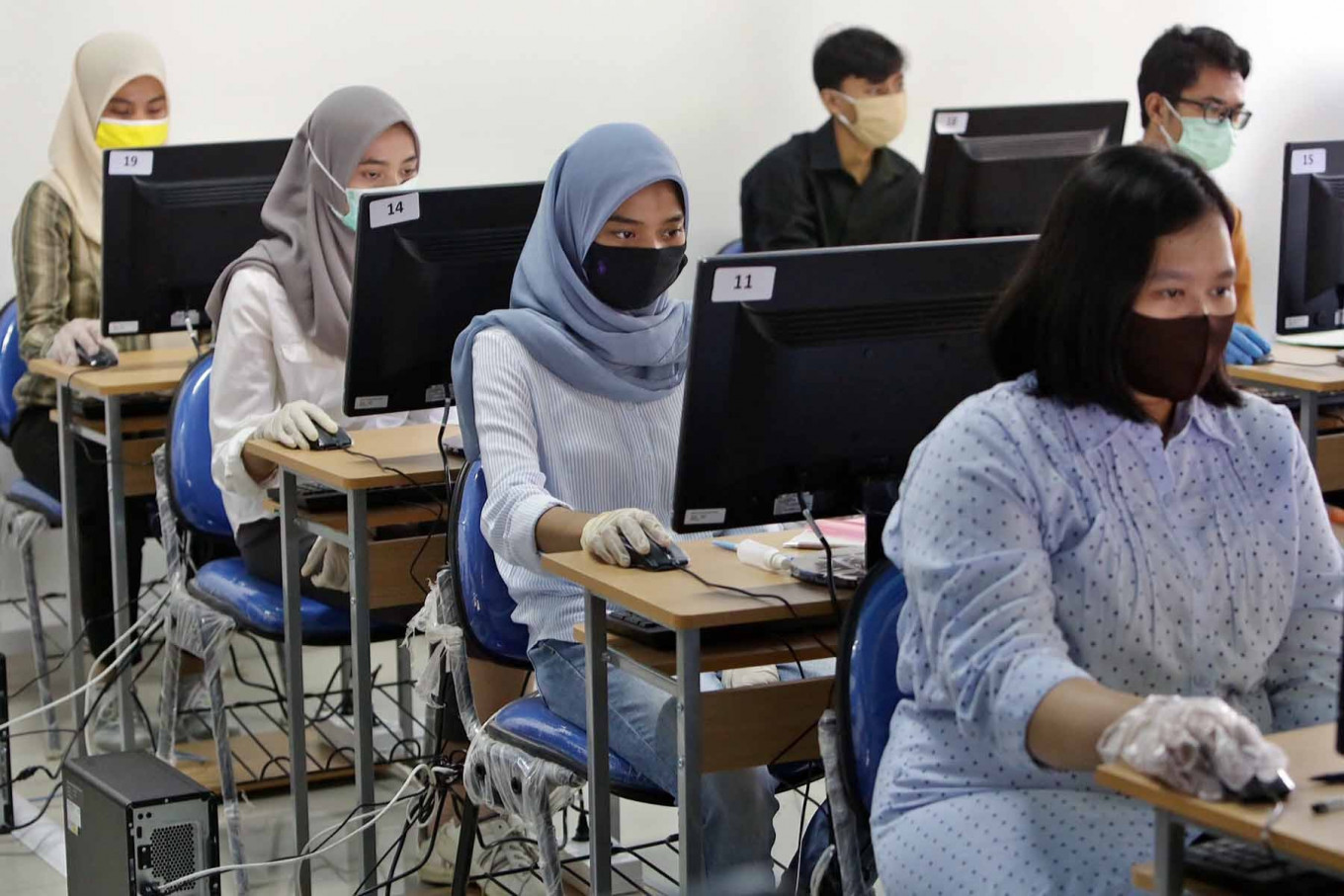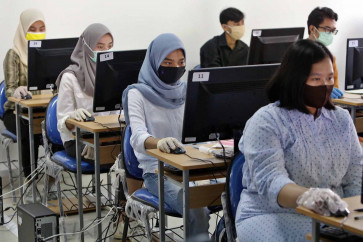Popular Reads
Top Results
Can't find what you're looking for?
View all search resultsPopular Reads
Top Results
Can't find what you're looking for?
View all search resultsHow political, economic interests fail our universities
University officials are likely to build a close relationship with government officials, members of the political elite and people with strong social, cultural, political and economic resources to pursue their personal gains.
Change text size
Gift Premium Articles
to Anyone
Like it or not, Indonesian universities have limited international recognition compared to other universities in the region. The University of Indonesia (UI) is the only one ranked under 1000 in the Times Higher Education and together with the other three state universities -- Gadjah Mada University, Airlangga University and Bandung Institute of Technology -- joins the top 500 of QS World University Ranking in 2022.
At the national level, however, our universities have been plagued with bad news, scandals and controversies, related to both academic or non-academic policies and activities. Numerous cases of sexual violence on Indonesian campuses have been reported in the last few years with the majority resolved outside the judicial process. Corruption has been quite rampant in public and private universities across the country, most recently involving the rector of Lampung State University (Unila).
The rector was caught in the act by the Corruption Eradication Commission of collecting bribe money during the student admission program. The rector set the price at between Rp 100 million (US$6.73) and Rp 350 million for each new student.
According to Kompas report (July 28), the opportunity to study in universities has become limited to those who belong to the upper-middle-class groups thanks to the annual increases in tuition fees that go beyond the standard of living of most Indonesians.
Universities have also stirred a controversy for their generosity in awarding honorary doctoral degrees and professorship to politicians or government officials without taking into account their extraordinary achievements. Education Ministerial Regulation No. 65/2016 and No. 38/2021 may justify such policies, but put academic independence and autonomy of the universities at risk, while internally they endanger the principles of fairness and meritocracy.
Referring to Andrew Rosser (2019), the quality development of universities in Indonesia, particularly the public ones, has been largely halted by the massive political intervention of government officials, politicians as well as various social forces in society. The tendency has a huge impact on the way public universities are governed, managed and developed.



















